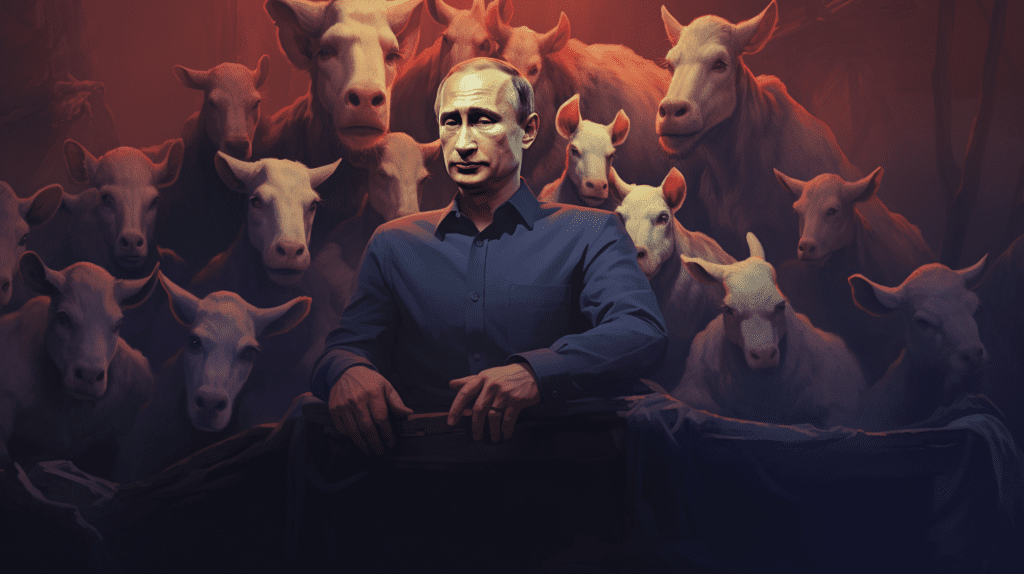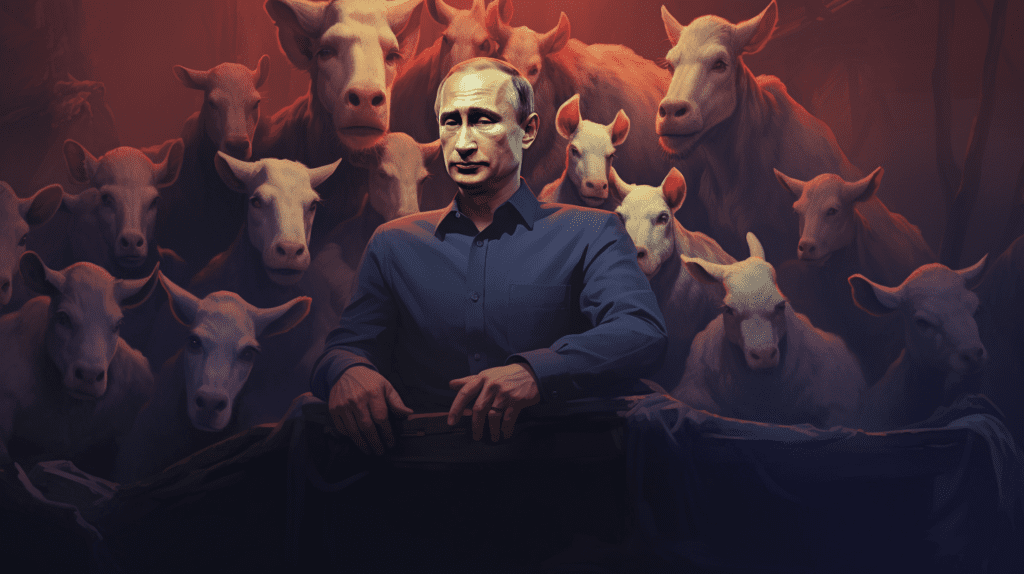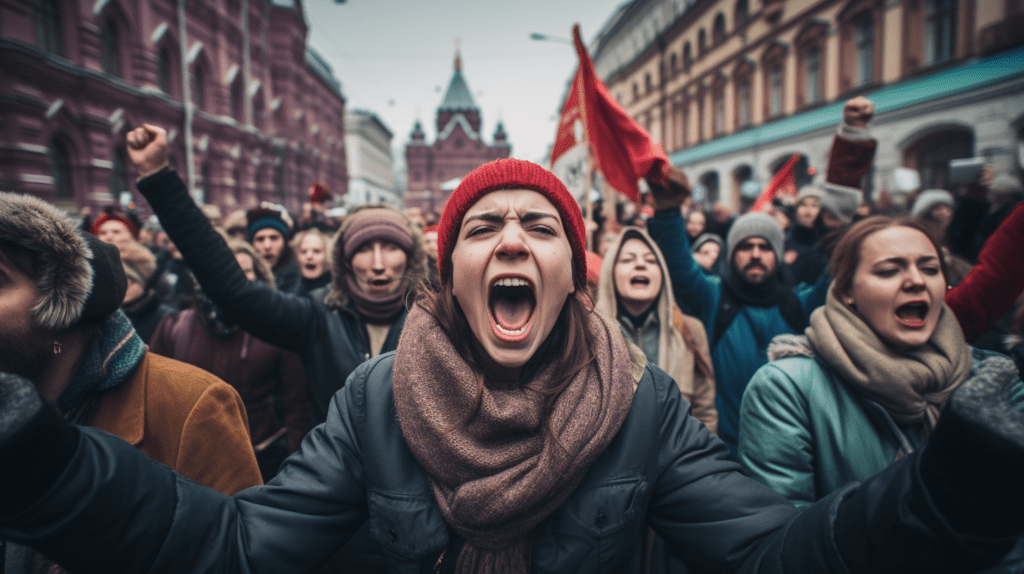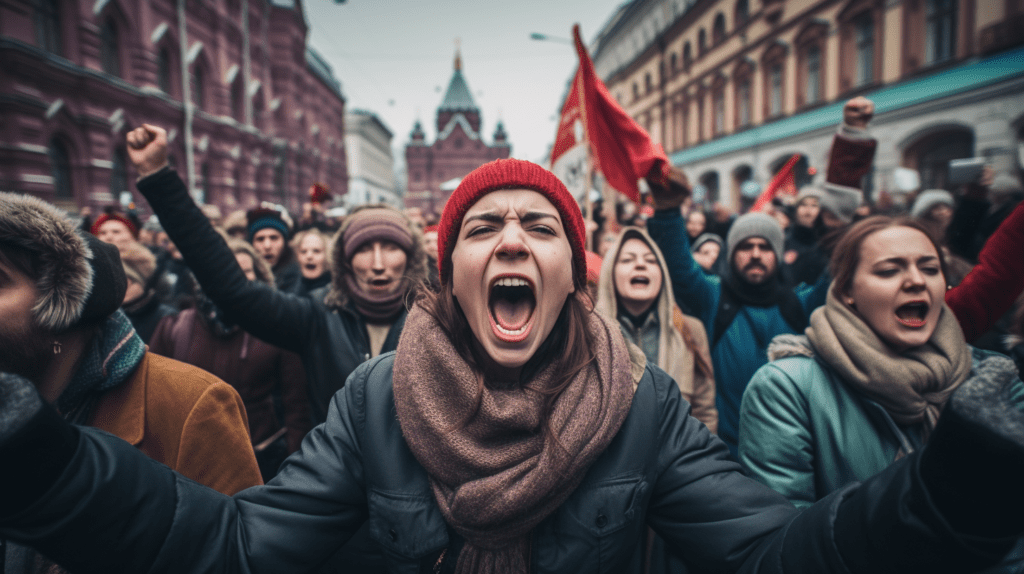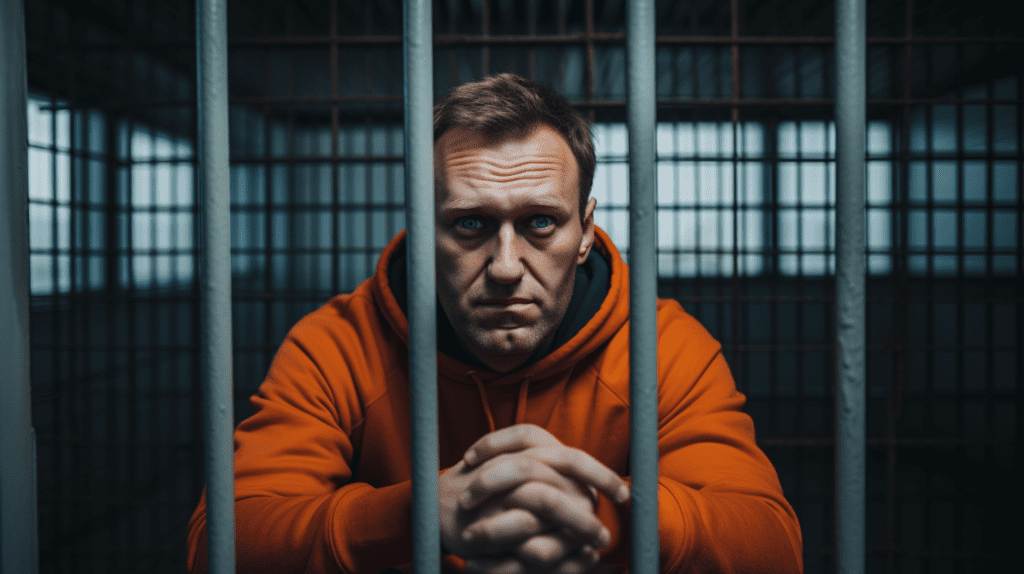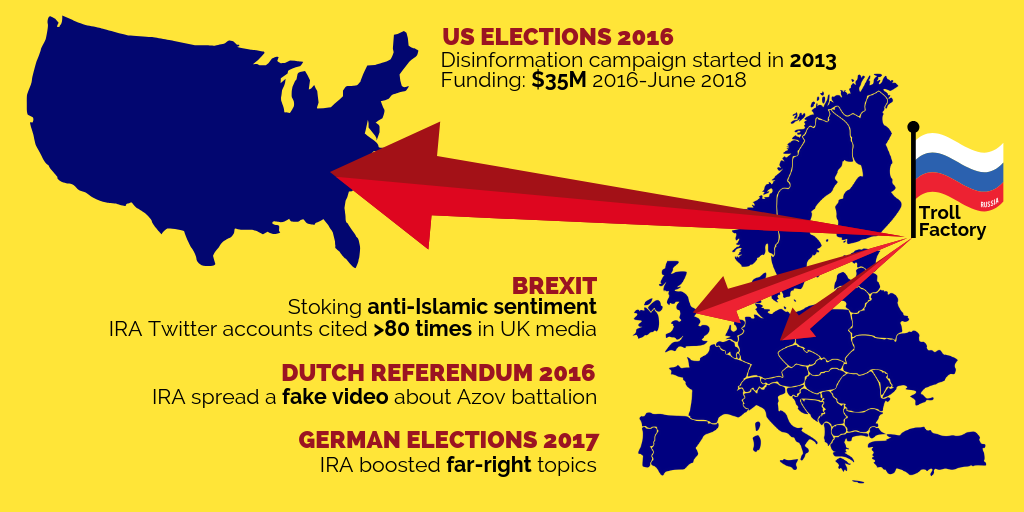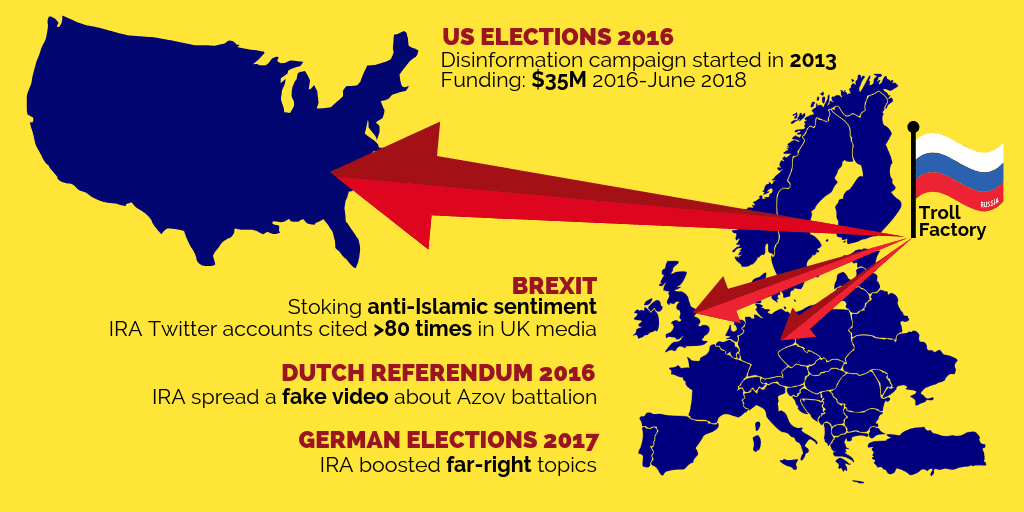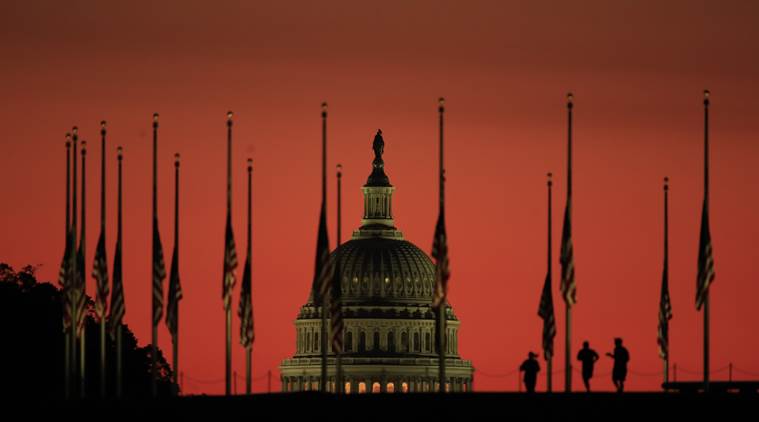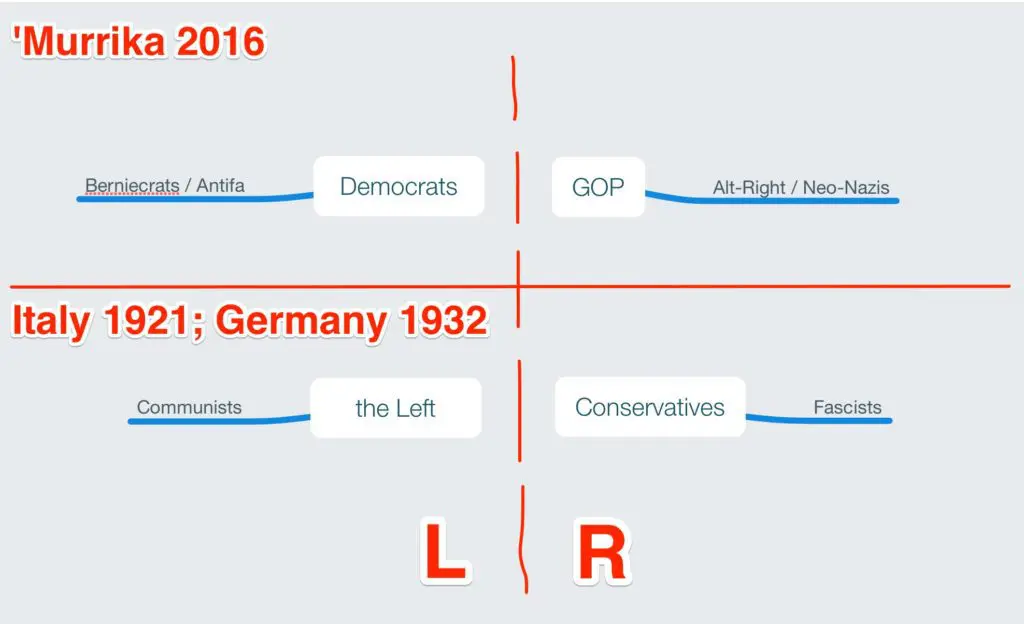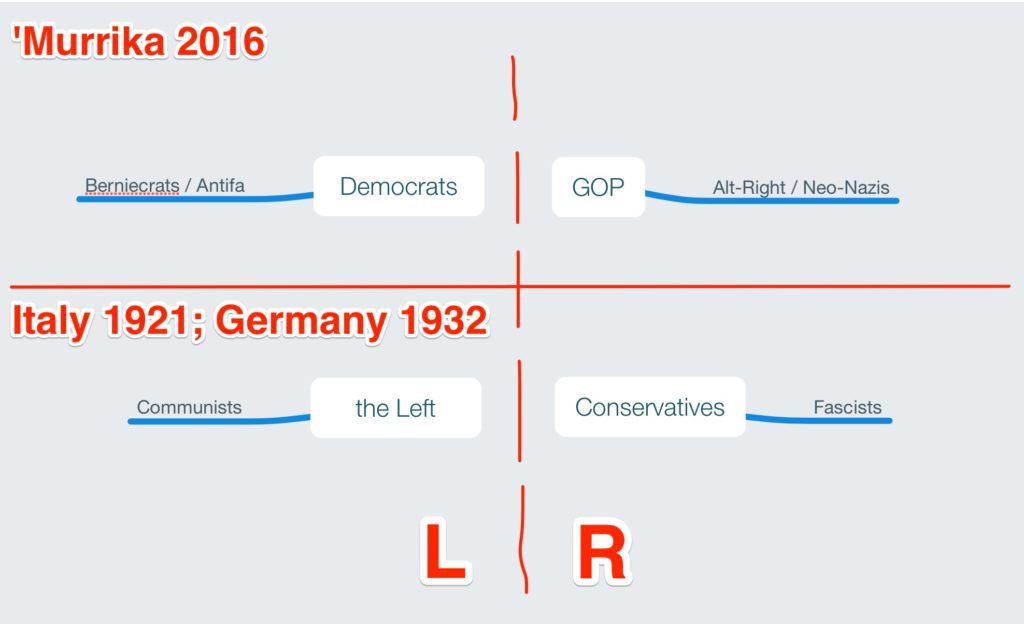In it simplest form, active measures incorporates information warfare aimed at undermining the West.
Active measures (“активные мероприятия” in Russian) refer to a form of political warfare conducted by the Soviet Union and now, by extension, Russia, to influence the course of world events. These measures include a wide range of activities, such as espionage, the dissemination of propaganda, and the establishment of front organizations, all aimed at manipulating the public opinion and decision-making processes in other countries.
The goal is often to destabilize opponents and weaken alliances contrary to the interests of the Soviet Union or Russia, without engaging in much riskier direct military conflict.
Disinformation in active measures
Historically, active measures have included complex operations, such as spreading disinformation, orchestrating smear campaigns, and using psychological warfare to sow discord and confusion among the target population. For example, during the Cold War, the KGB engaged in active measures to spread false information about the United States, aiming to weaken its credibility and influence on the global stage.
These operations were meticulously planned and could span years or even decades, employing a variety of tactics from leaking altered documents to fostering relationships with sympathetic or unknowing individuals within influential positions.
In the digital age, the concept of active measures has evolved with technology. Social media platforms and the internet have become fertile grounds for such operations, allowing for the rapid spread of disinformation and the manipulation of public opinion on a scale previously unimaginable.
These modern active measures can involve cyber attacks, the use of trolls and bots to amplify divisive content, and the strategic release of hacked information to influence political outcomes, as seen in various elections around the world (the Wikileaks email dumps that helped Trump eke out the presidency in 2016, e.g.). The adaptability and covert nature of active measures make them a persistent challenge for governments and societies trying to safeguard democratic processes and maintain national security.

